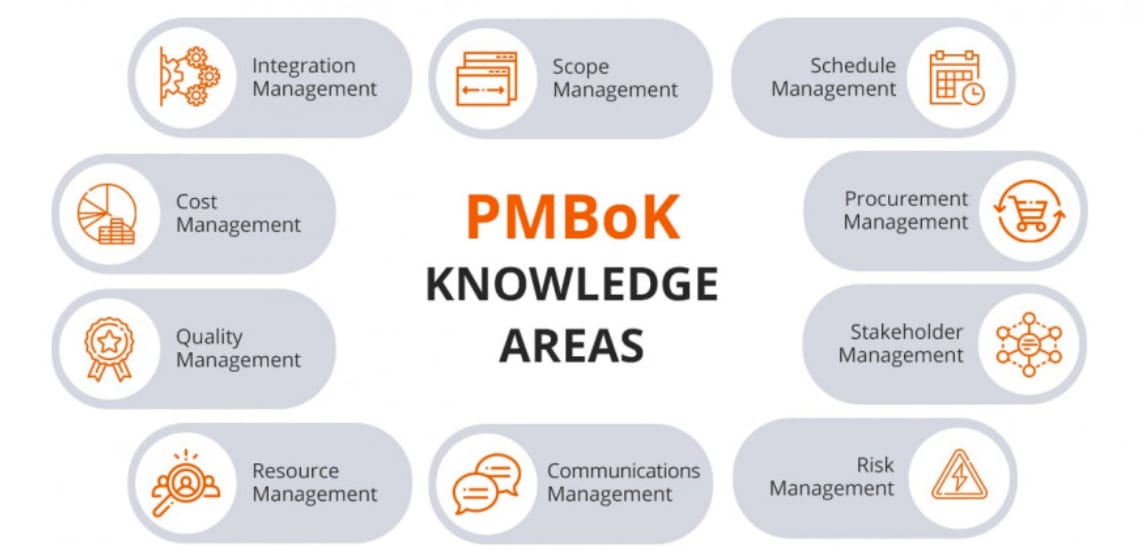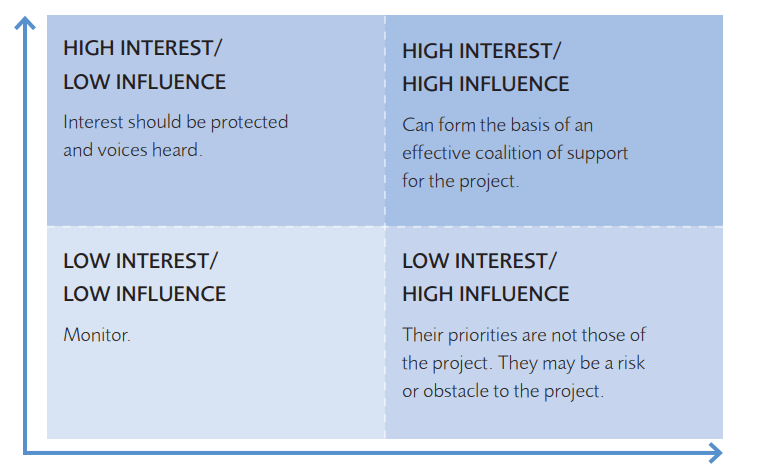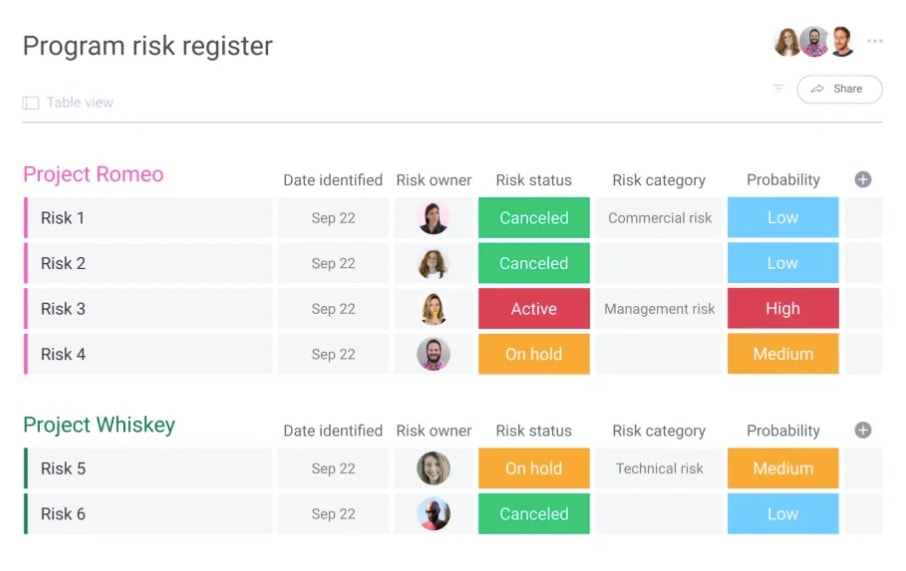Effective project management is no simple feat — it takes the right balance of best practices and software to support many functions, like budgetting, time management, communication, and more.
Many turn to the Project Management Institute (PMI) to define the details of distinct project management knowledge areas — according to PMBoK there are ten! We decided to make it easier to understand and much briefer in our article.
Read on to explore five key project management knowledge areas for project success and some highlights of the other five.
What are the 10 key project management knowledge areas?
The PMI ‘Bible’ — the Project Management Body of Knowledge (PMBoK) — refers to 10 key project management knowledge areas.
The PMBoK is helpful as it brings a standardized, and repeatable, approach to project management which means you get to profit from the lessons (read: mistakes) others made before you. If you apply the learning from the 10 knowledge areas you’ve got a pretty good chance of a successful project.
What are the benefits of using the PMBoK knowledge areas?
Some key benefits that come from following a tried-and-tested project management process such as this are:
- Improved organization: The PMBoK knowledge areas tell you, pretty comprehensively, what you should be doing throughout the lifecycle of your project. They signpost you to key documentation that should be completed and to which tools and techniques can help.
- Project transparency: Using documents such as the project charter and project plan helps bring clarity to the project. The project charter details the intended project objective, project scope, and key project deliverables so everyone should be clear on what the project is trying to achieve, and how.
It also lays out the roles and responsibilities of business stakeholders and the project team so everyone knows who’s accountable for what.
- Effective control: There are a number of project management knowledge areas that focus on monitoring and control. Whether that’s project schedule or cost management, or making sure you’ve detailed the change control process as part of your project integration management, they’ve got you covered here too.
The most important things to focus on for project success are time, scope, and cost — these are also sometimes called the ‘project management triangle” of project success factors.
Here’s a look at the five PM knowledge areas we will cover in the next section:
- Project Integration Management
- Project Scope Management
- Project Schedule Management
- Project Cost Management
- Project Stakeholder Management
5 most important project management knowledge areas
While all knowledge areas in project management offer their benefits to project managers and teammates, we chose the top five that are often poorly managed — or rather could be optimized using software like monday.com. Here, we’ll provide a quick summary of each.
1. Project integration management
Project integration management is the coordination of all project elements. This includes things like:
- Coordinating tasks
- Managing and evaluating resources
- Communicating with stakeholders
- Managing conflicts
- Balancing competing requests
2. Project scope management
Statistics concerning project duration make for even worse reporting — only 29% of projects run on time. This usually relates to managing the scope of the project.
Scope is essentially a detailed outline of all expected and required project aspects, including activities, resources, timelines, deliverables, and project boundaries.
This knowledge area is critical, as scope creep — adding work that isn’t authorized as a part of the project scope — is a real issue in projects and affects the project timeline and budget, and the ability to effectively manage resources. There are, of course, occasions where the project scope does need to change mid-project which is why it’s so important to have an effective change control process.
3. Project schedule management
During the planning phase of the project lifecycle, the project manager has to create the project schedule. This involves taking the agreed project scope and breaking it down into a task list to be completed over time.
For each task the project manager has to agree on a start and finish date. You’ll then need to order the tasks by working out the relationships between the tasks and whether any are dependent on each other.
Understanding how long each task will take and the relationship between them, helps to identify those tasks where there’s some wiggle room as to when they’re delivered and those which are on the critical path. Tasks on the critical path have to be delivered on time or the whole project timeline is affected.
Earned value analysis is conducted during the project execution phase to determine if the project is on track to deliver within budget and schedule.
4. Project cost management
Cost management is critical to keeping your project within budget. Only 43% of projects are delivered within budget. Happily, as a knowledge area it’s one of the simplest to understand. There are no acronyms and no fancy analysis tools. It’s just a case of:
- Estimating the cost of the project tasks
- Determining the project budget based on your identified costs
- Controlling costs throughout the project lifecycle
5. Project stakeholder management
During the project initiation phase, you should spend a significant amount of time identifying and analyzing project stakeholders. This analysis should include plotting key stakeholders on an influence vs. interest matrix to determine your key supporters and also those who are less keen.
Once the project is underway, you’ll use your project communication plan — something like the template below — to engage stakeholders and keep them up to date with project progress.
What about the other 5 PMBoK knowledge areas?
As promised, here are some highlights of the remaining five project management knowledge areas.
1. Project quality management
The desired quality of the output can have a significant influence on project time and cost. It’s important to decide the quality level and standards during the project initiation phase.
2. Project resource management
Good resource management is one of the most challenging areas of project management. Make it easier with this resource management template from monday.com.
3. Project communications management
Having identified your stakeholders, you need to build a plan to communicate effectively with them through the project lifecycle. During project execution you’ll be putting your communications plan into action and monitoring it to make sure it’s making a difference. Internal communication is crucial.
4. Project risk management
This knowledge area is about the identification, prioritization, and mitigation of risks. You’ll need to capture all identified risks in the project risk register. Struggling for inspiration? Write down scope creep, project delay, and going over budget. It happens in over 50% of projects.
5. Project Procurement Management
This is about planning when, and how, the project would procure resources or services to support the project. The rest of the knowledge area details how to conduct and control the procurement process.
Frequently asked questions
What is meant by knowledge areas in project management?
Knowledge areas in project management help project managers prioritize different project management processes for successful execution. They are general themes like cost management or scheduling.
How many knowledge areas are there in PMBoK?
There are 10 official knowledge areas according to PMBoK.
Why are the project management knowledge areas important?
Project management knowledge areas are important because they provide a framework for different project management processes throughout a project lifecycle.
Practice project management knowledge areas on monday.com
And there you have it, the complete list of project management knowledge areas. It’s a lot to keep track of, which is where project management software can really add value. For knowledge, like most things in life, it’s not just that you have it, it’s what you do with it that counts.
Using a complete Work OS like monday.com provides the tools you need to take your knowledge and turn it into action. We offer over 200 fully customizable templates that cover all 10 of the project management knowledge areas and make them easy to manage.
Why not kick off your project integration management with our Project Roadmap Template?




